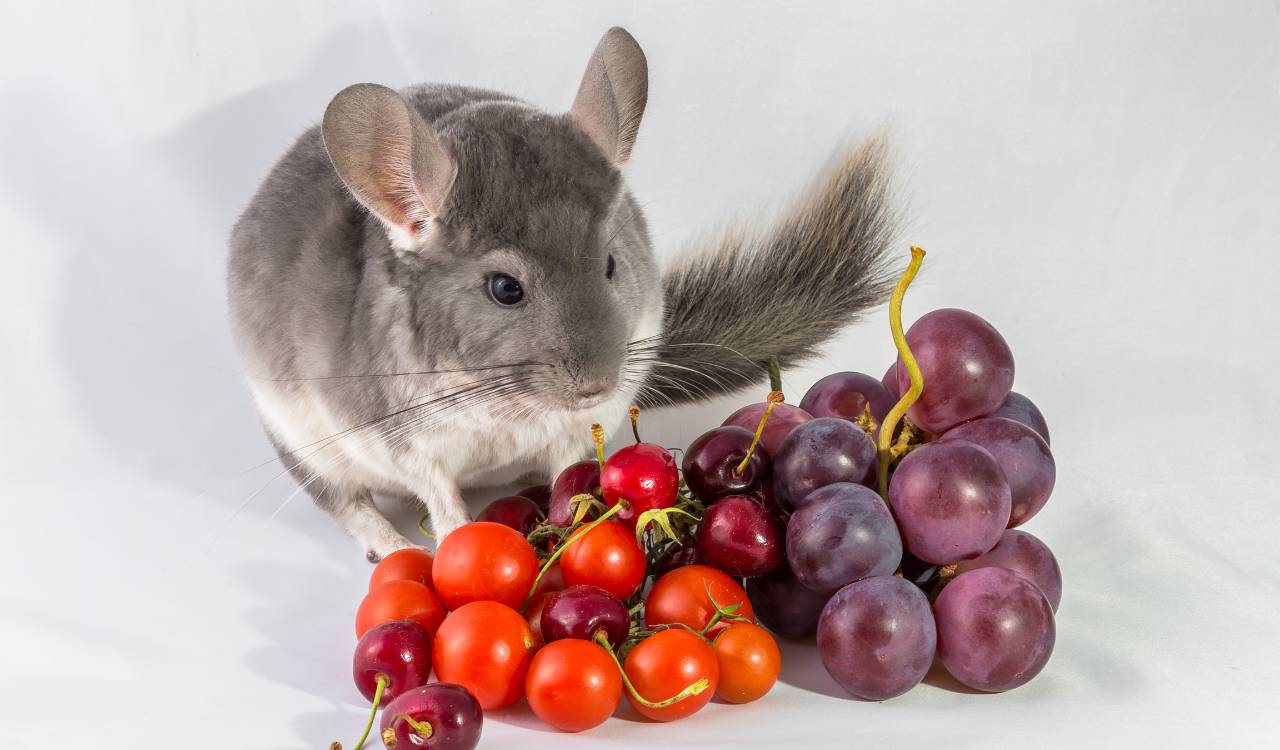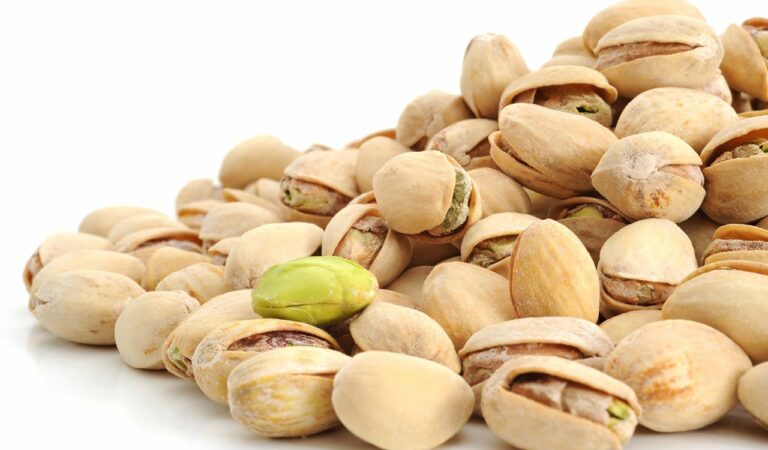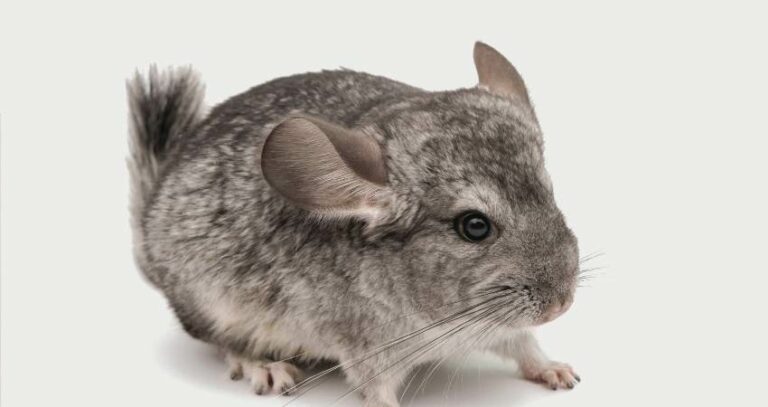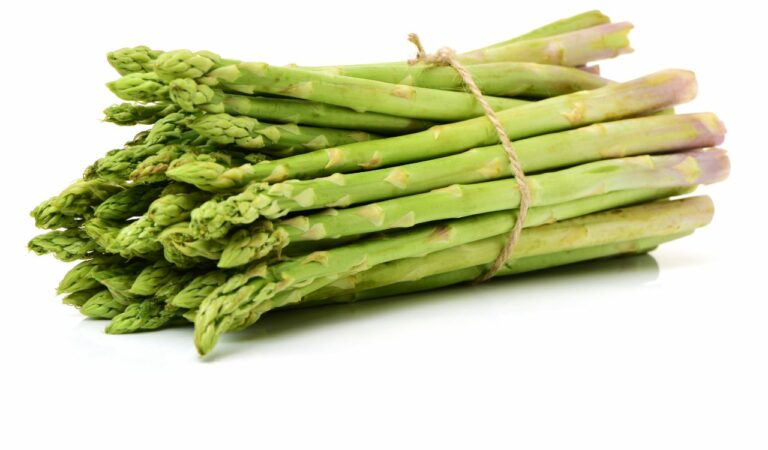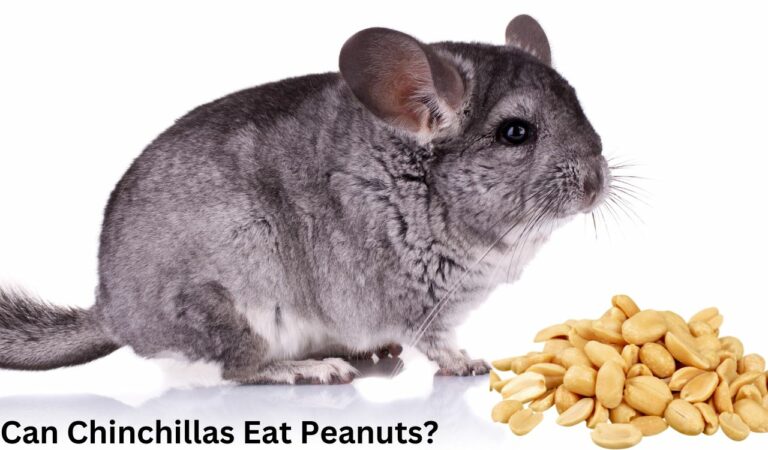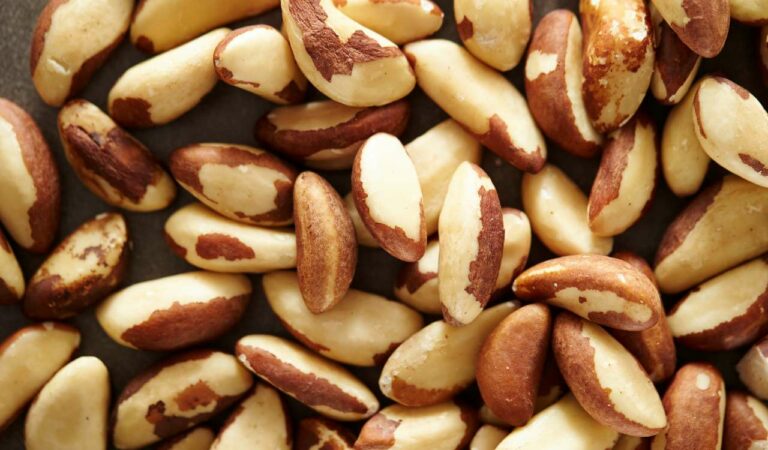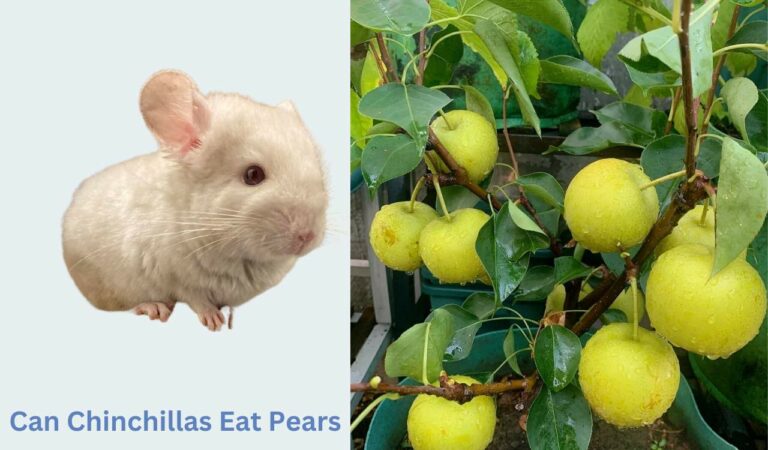What Fruits Can Chinchillas Eat? (Surprise Treats For Chinchilla)
Chinchillas belong to the rodent family and are adorable creatures with soft and dense fur. Since Chinchillas are low-maintenance mammals, you should ensure a healthy diet for their well-being.
And that’s why knowing what fruits Chinchillas can eat is essential. Chinchillas have sensitive digestive systems, and you cannot give them all fruits as a treat. Fruits like apples, berries, pears, peaches, and dried fruits like raisins, cranberries, etc., can be fed in very few quantities. Note that you should feed your chinchilla fruit 2-3 times a week in less quantity.
Moreover, you should not feed fruit with high water and sugar to chinchillas as it will lead to digestive problems and obesity. Although fruits are excellent and natural sources of vitamins and minerals, they can take a toll on chinchillas’ health.
So it is essential to be mindful of what fruits in what quantity you should feed to chinchillas. Read this guide to find more!
What Fruits Can Chinchillas Eat?
Chinchillas are herbivores that feed on grass, hay, and other vegetation. The breakdown of the chinchilla’s diet is as follows:
· 35% carbohydrates
· 30% fiber
· 15% protein
· 4% sugar
· 3.5% fat
So considering this, you can feed fruits to your pet chinchillas. But, you cannot overfeed the fruits to your chinchilla since it only needs 4% of sugar in its diet.
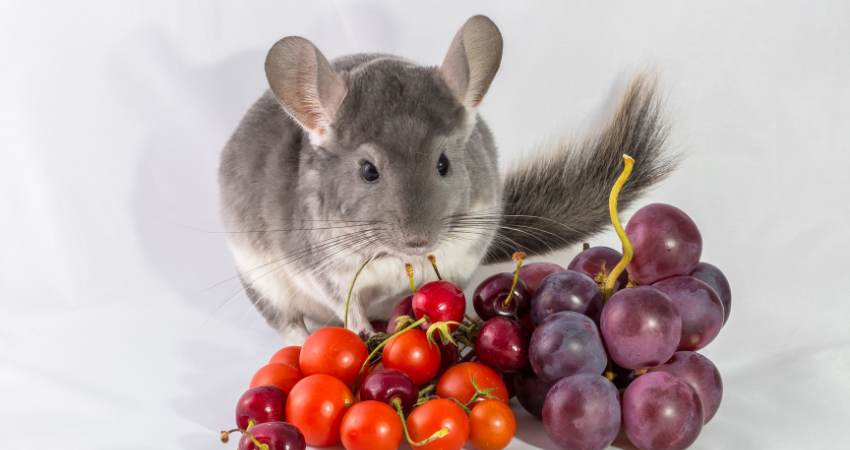
As fruits mostly come packed with sugar and water, it will upset their digestive system. Moreover, most chinchilla owners and vets recommend feeding dried fruit instead of fresh fruits.
In fact, sometimes, you can give chinchilla fruits and vegetables as a treat. But if you want to do so, you should do it in moderation. Also, not all fruits are suitable for chinchillas. Here is an overview of the chinchilla fruit diet, followed by an explanation of each fruit.
| Fruits | Serving Size | Frequency |
| Apples | 1-2 small slices with skin on | 1-3 times a week |
| Apricots | One small piece | 1-3 times a week |
| Blueberries | 1-2 | Once a week |
| Pears | 1-2 raisin-size bites | 1-3 times a week |
| Grapes | 1-2 | 1-2 times a week |
| Papayas | 1-2 small pieces | Once a week |
| Raspberries | 1-2 | 1-2 times a week |
| Dried Fruits (almonds, raisins) | 1-2 slices or pieces | 1-2 times a week |
Apples

Chinchillas can have apples. It’s the most resonating question. Yes, apples are packed with vitamin C and fiber, so you can offer red and green apples. When you feeding apples to chinchinlla give them a thin, small apple slice with skin on it once or twice a week. But remember to give them without the seeds.
Apricots
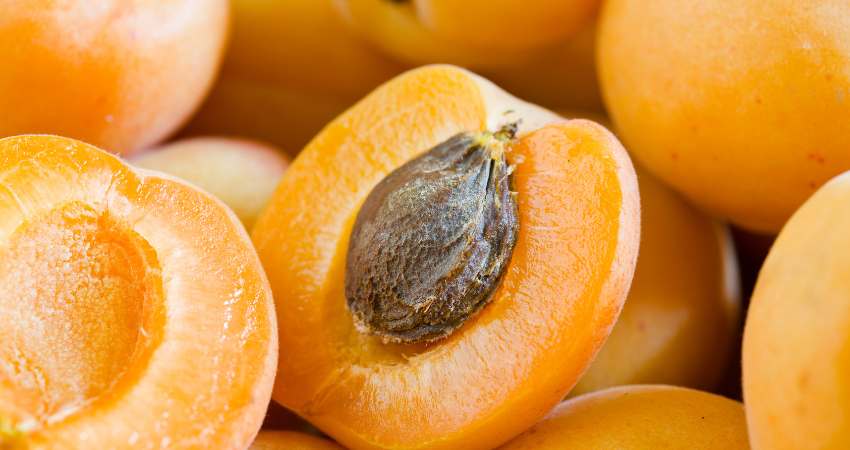
Chinchillas can endeavor on apricots but don’t forget to remove the pit from the apricot. And also, you must not feed the apricot pit by any chance since it contains cyanide.
Although you can treat chinchillas with apricots, you should not exceed one small slice thrice a week. If you overfeed apricots, your chinchilla can suffer from diarrhea, stomach upset, and even obesity.
Blueberries

Blueberries are safe for chinchillas, but as with every other fruit, you should not rely solely on these. They are a good source of antioxidants and vitamin C. Feeding your chinchilla blueberries can give mental stimulation and enrichment. you should feed them one or two blueberries once a week.
Pears

Pears offer several benefits to chinchillas until given in moderate quantities of one to two raisin-size bites 1 to 2 times a week. Pears can help your chinchilla’s immune system and digestion.But as with other fruits, it is also rich in sugar, so don’t overfeed it.
Grapes

Grapes are also safe for chinchillas. However, give them without seeds as they might choke on seeds, and the seeds contain cyanide, too. Moreover, grapes also house a high number of sugar compounds, so give them one or two grapes twice a week.
Papaya
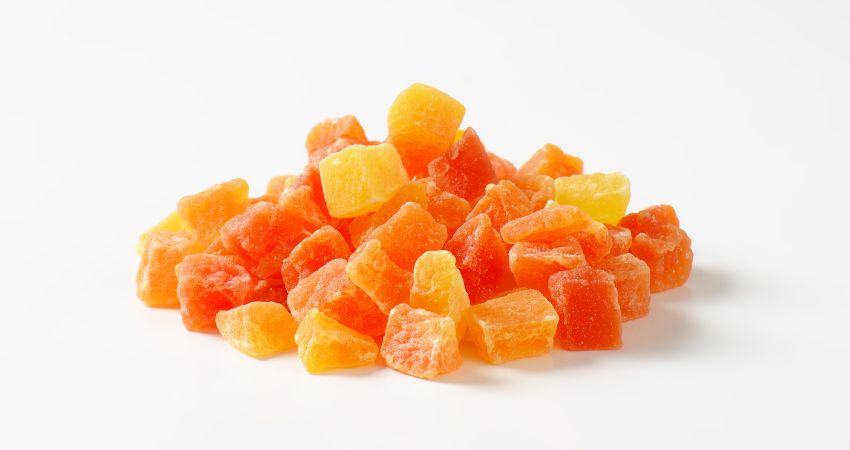
Papaya is rich in digestive enzymes and vitamins, so you can feed papaya to chinchillas. But don’t forget to remove the seeds. You can serve a small piece of papaya, say 1cm x 1cm cube, to chinchillas once a week.
Raspberries
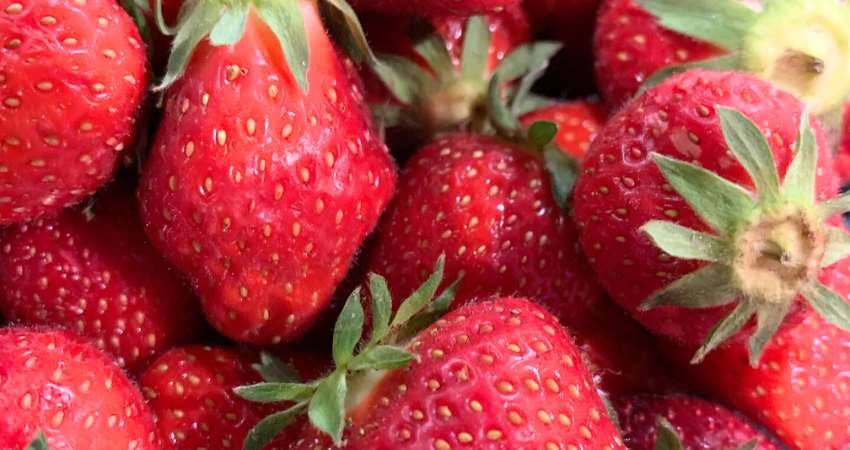
Chinchillas can devour raspberries as they are a good source of Vitamin C, fiber, and antioxidants. All these ingredients of raspberries are beneficial for chinchillas‘ overall health. Speaking of its serving size, you should not exceed 1-2 raspberries, at most, twice weekly.
Can Chinchillas Eat Dried Fruits?
There is a massive debate about feeding dried fruits vs. fresh fruits to chinchillas. Since dried fruits are high in calories and contain a lot of sugar, many say it leads to obesity in chinchillas.
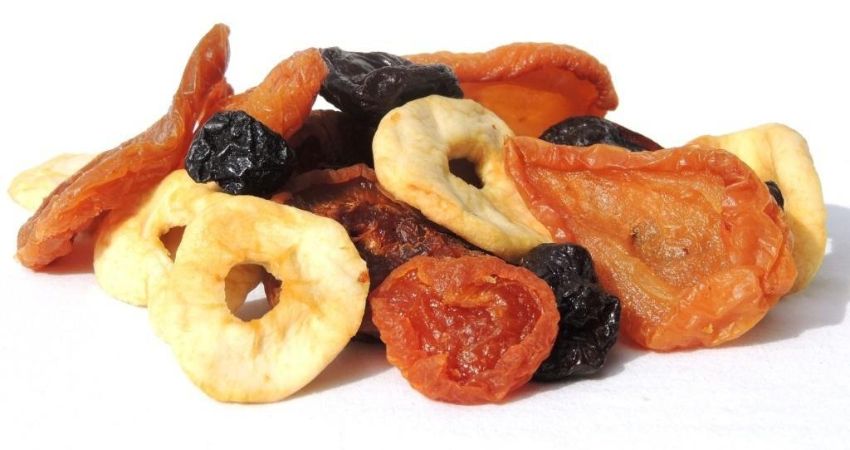
On the other hand, fresh fruits also have abundant sugar and water, leading to upset stomachs. So the key to feeding dried fruits to chinchillas is to give them in moderation.
Moreover, it would be best to opt for unsweetened and unprocessed dried fruit varieties to cut those extra calories. Chinchillas can also eat raisins. However, give them one to two pieces twice a week.
Other popular dried fruits safe for chinchillas are dried apples, apricots, and almonds. However, keeping the serving size small is essential, as dried fruits are more concentrated in sugar and calories than fresh fruits.
What Dried Fruit Can Chinchillas Eat?
Here are some dried fruits that you can feed chinchillas in small quantities:
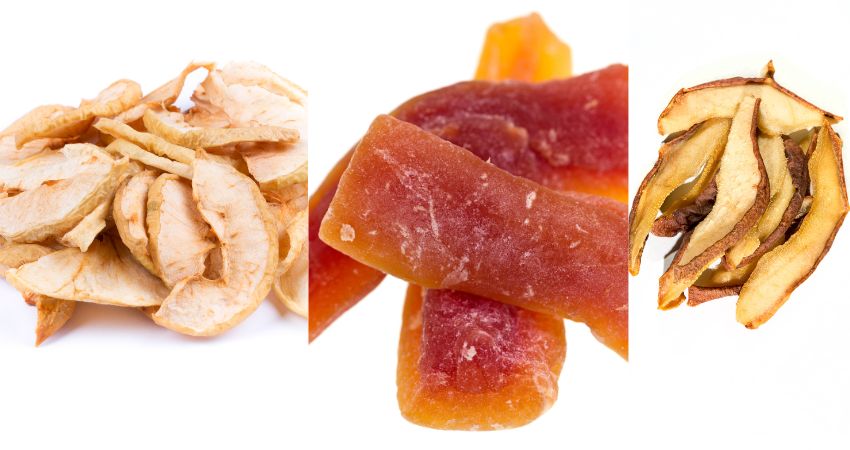
- Dried Apple
- Dried Pears
- Dried Papaya
Whenever you feed chinchillas dried fruit, make sure they don’t have any added sugar and preservatives. Moreover, if you are uncertain about whether a specific dried fruit is safe for your chinchilla, it’s best to avoid it. It is better to stick to fresh fruits as occasional treats.
What Fruits Can Chinchillas Not Eat?
Although fruits in more than moderate quantities are generally not safe for chinchillas, there are some fruits that you should never offer to them. Because those fruits either contain harmful chinchilla compounds or have whooping sugar levels. Some of the fruits that you must not feed chinchillas are:
Citrus fruits
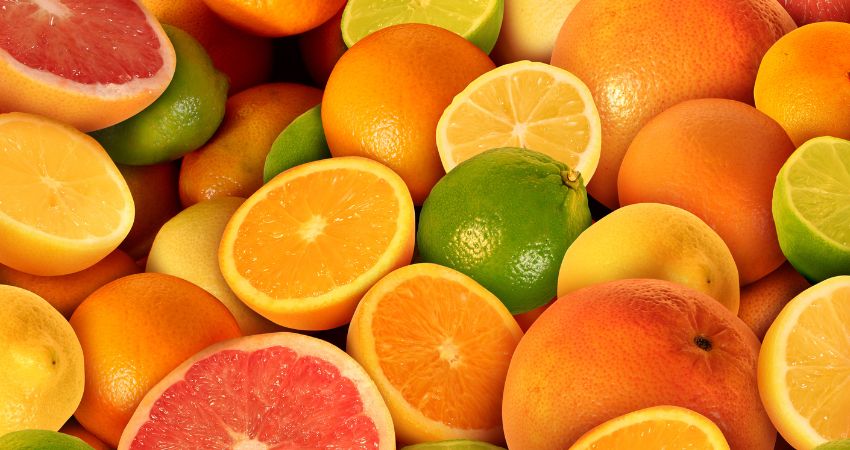
All citrus fruits, such as oranges (of all sorts, including orange peel), lemons, and limes, are unsuitable for chinchillas. Citrus fruits contain high amounts of acidic compounds, which can cause mouth blisters or digestive problems in chinchillas.
Bananas

Bananas are not suitable fruit for chinchillas either. Why? Because it is rich in phosphorus, and upon consumption, it leads to calcium imbalance. Consequently, with calcium-phosphorus imbalance, chinchillas will suffer from dental problems, muscle spasms, and nutritional imbalances.
Besides that, bananas are also acidic and have high sugar, fat, and potassium levels leading to constipation and stomach pain. If you want to feed bananas to your chinchilla, keep it to one thin slice once a week.
Pineapple

Pineapples are not safe for chinchillas to eat since they contain many natural sugars. Excessive pineapple consumption can en route to digestive problems in chinchillas. Not only that, but pineapple is also acidic, which can cause mouth sores and discomfort in chinchillas
Mango

Can chinchillas eat mango? Most chinchilla owners ask. No chinchillas cannot eat mango. It might seem an enticing treat, but it is unsuitable for chinchillas. Its high sugar and water content can cause digestive upset in chinchillas.

Avocado houses a toxin, persin, which can harm chinchillas. Chinchillas can suffer from breathing difficulties, vomiting, and diarrhea upon consumption of avocado.
Cherry Pits
Cherries are safe to consume by chinchillas, but their pits are dangerous. You can feed the outer part, but its shell contains cyanide, which can be fatal to chinchillas if consumed in large amounts.
Peach
Peach pits also contain cyanide; you should not offer it to chinchillas.
Plum
Plum contains oxalic acid, which can lead to kidney damage and other health complications in chinchillas.
Note: If you want to feed a chinchilla a specific fruit but are unsure about its safety, you should consult a veterinarian specializing in exotic pets. A vet can guide you about the safety of fruit for your chinchilla. However, be mindful that any fruit in excessive quantities damages chinchillas’ health.
What are the Nutritional Benefits of Fruits for Chinchillas?
While you should only offer fruits as occasional treats in small amounts, fruits entail amazing nutritional benefits when offered in moderation. Here are some of the potential nutritional benefits of fruits for chinchillas:
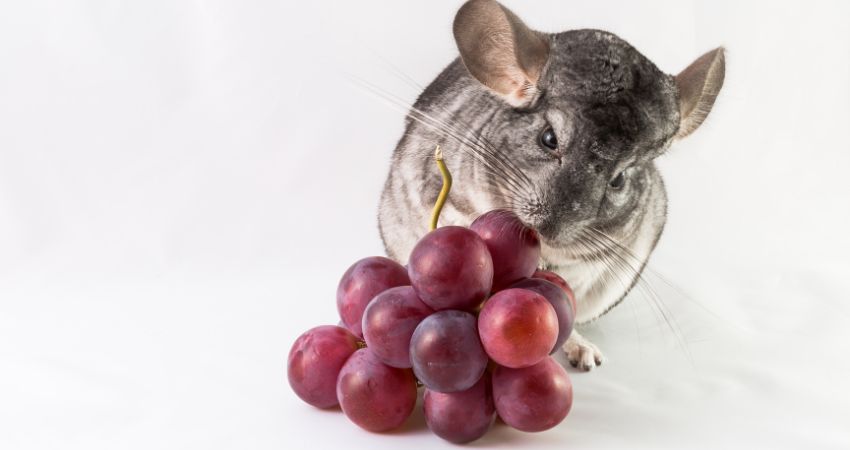
Vitamins:
Fruits can be a source of various vitamins essential for chinchilla health. Vitamin C, in particular, is crucial for rodents like chinchillas. Vitamin C helps them reduce oxidative stress and improve their immunity
Though chinchillas can produce their own vitamin C, additional supplements can add extra nutrition to their diet list.
And if they consume fruits like apples and papaya, they get vitamin C. So your chinchilla gets immune system support, healthy skin, and better absorption of iron. But remember too much of these fruits can cause mouth blisters so make sure to offer them in moderation.
Dietary Fiber:
Although you can feed hay for the chinchilla’s dietary fiber needs, some fruits also offer fiber. Fiber is essential for maintaining proper gut motility, preventing digestive issues like constipation, and promoting overall digestive health in chinchillas.
Antioxidants:
Fruits are rich in antioxidants. With these antioxidants and phytochemicals, chinchillas reduce oxidative stress. Antioxidants can support the chinchilla’s immune system and protect against certain diseases.
Minerals:
Certain fruits house essential minerals like Calcium Copper and Iron. These minerals help maintain proper muscle function and overall cellular health in chinchillas.
Variety and Enrichment:
Offering a small amount of fruit as an occasional treat can add variety to a chinchilla’s diet and provide mental and sensory enrichment. This can help prevent boredom and stimulate their natural foraging instincts.
Dried or Fresh Fruits For Chinchilla Which is Better?
For chinchillas, neither dried nor fresh fruits are considered essential in their diet. The primary components of a chinchilla’s diet should be high-quality hay and chinchilla pellets, as these provide the necessary fiber, nutrients, and dental wear required for their overall health.
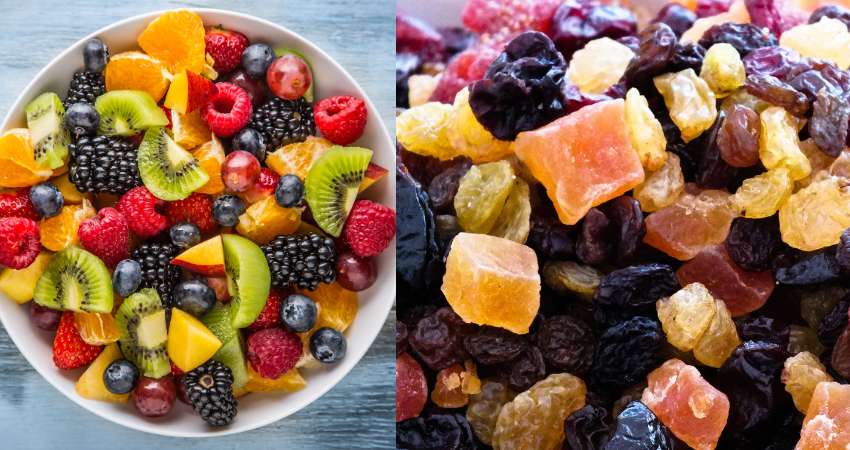
If you are considering offering fruits as occasional treats to your chinchilla, fresh fruits are generally a better option than dried fruits for several reasons:
- Less Sugar: Fresh fruits typically have less concentrated sugar content compared to dried fruits. Sugar is not suitable for chinchillas in large amounts, as their digestive systems are adapted for a high-fiber, low-sugar diet.
- Hydration: Fresh fruits have higher water content, which can help keep chinchillas hydrated, especially during hot weather or if they have difficulty drinking from a water bottle.
- Less Processing: Fresh fruits are minimally processed and retain more natural nutrients and antioxidants than dried fruits.
If your chinchilla shows no interest in or refuses to eat fruits, there’s no need to worry. As long as they have a balanced diet of hay, pellets, and access to fresh water, they should be getting all the essential nutrients they need.
Some Tips to Feed Chinchillas Fruits
Here are some points and tips to consider when feeding chinchillas fruits.
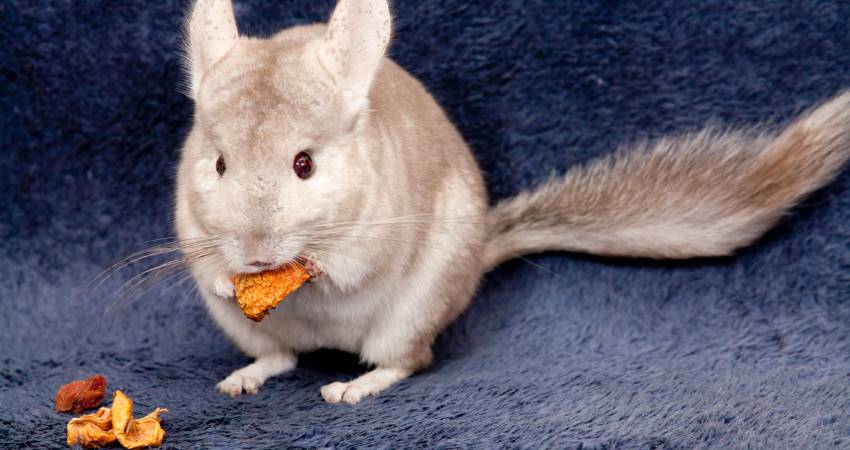
Keep Fruit Portion in Ratio
Chinchillas primarily feed on grass and hay, so you can not depend on fruits solely for chinchillas’ diet. In fact, you can offer fruits to chinchillas as a treat. Remember that it should not exceed 10% of their diet.
And as mentioned earlier, if you overfeed fruits to chinchillas, they might get overweight and develop health issues. So keep the chinchilla food balanced with hay, water, and pellets.
Consider the Individual Needs of your Chinchilla
Note that chinchillas’ dietary needs may vary for every chinchilla. In other words, their age, health status, and activity level contribute to determining how much fruit they can take. If you are unsure about your chinchilla’s dietary needs, consult a veterinarian or animal nutritionist.
Introduce Fruits Gradually
Chinchillas are delicate animals, so you should always introduce new fruits carefully. It would be best to start gradually and slowly with fruits as they give their sensitive digestive system to metabolize new food. Moreover, you can also monitor them for any allergies by offering small fruit pieces.
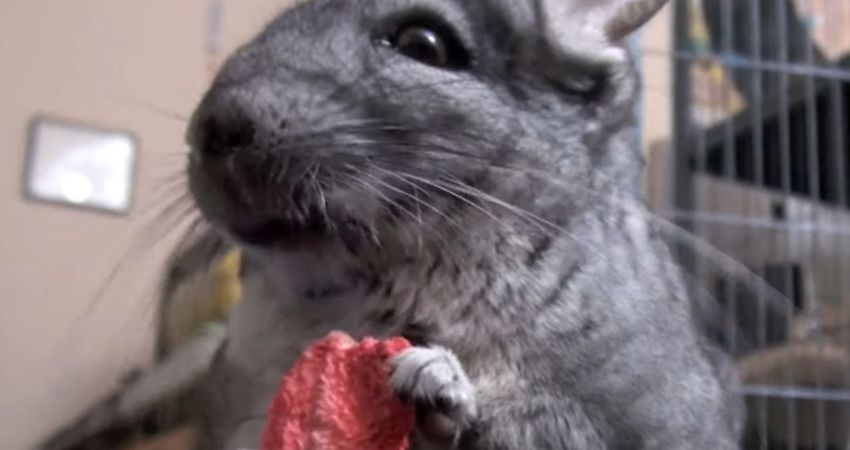
If you notice they are having a wrong time with fruits, you can stop feeding them immediately. Otherwise, you can slowly increase the fruit amount, but remember to adhere to our above-mentioned food portion threshold.
Moreover, you should also feed one fruit because feeding different fruit will make it challenging to figure out allergies.
Consult Vet in Case of Health Condition
If your chinchilla has any underlying health conditions or is on other meds, you should take permission from your veterinarian before offering the new foods. The vet can better determine what fruits you can offer and how much quality per the chinchilla’s needs.
Opt for Fresh Fruits than Canned Fruits
Fresh fruits are a better choice than canned fruits or dried fruits. Why? Because canned and dried fruits both contain extra sugar and preservatives that can harm chinchillas’ health.
Remove Seeds and Pits
As mentioned above, fruit seeds and pits often contain cyanide, which can be detrimental to chinchillas. So it is better to remove them before giving it to the chinchillas. Apart from the seeds, ad pits also entail choking hazards.
Last but not least, you should ensure that chinchillas have access to clean water at all times. Moreover, you should avoid feeding chinchillas foods high in fat, such as nuts and salt.
Recommended Supplementary Foods for Chinchillas
Chinchillas have specific dietary needs. As a responsible chinchilla parent, you should look out for them. You should keep the high-quality hay, supplemented with chinchilla-specific pellets and fresh water, as a primary diet.
Here’s a bit of detail about Chinchilla’s recommended supplementary foods:
Timothy Hay:
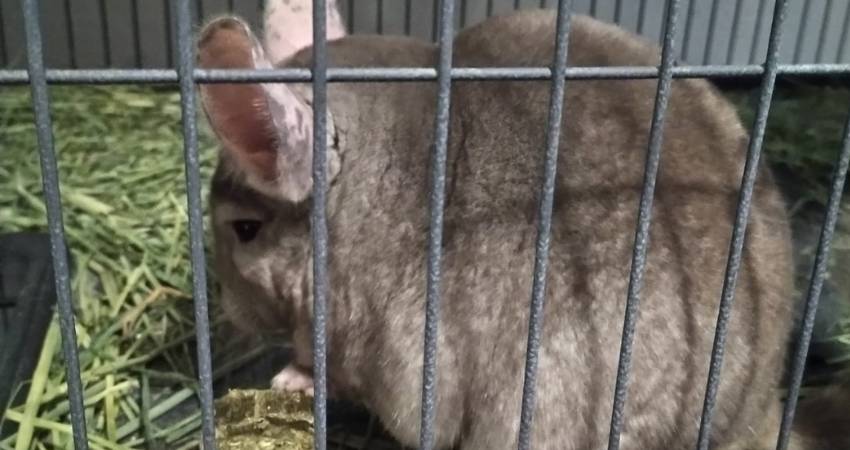
Timothy hay is the cornerstone of a chinchilla’s diet. Why? Because it offers the necessary fiber for proper digestion. Moreover, it also helps wear down their continuously growing teeth. So it is your job always to offer fresh, high-quality Timothy hay.
Chinchilla Pellets:
You should also offer high-quality chinchilla pellets specifically formulated for chinchillas daily. Because these pellets go hand in hand with the specific nutritional requirements of chinchillas.
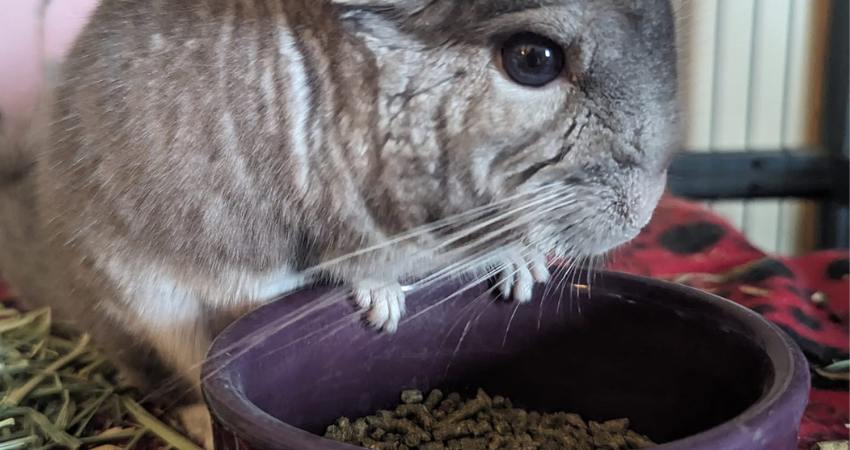
Since they have the right balance of fiber, protein, and other essential nutrients, they can be ideal.
Fresh Vegetables:
You should offer vegetables as occasional treats to provide some variety and additional nutrients to chinchillas. Some safe vegetables for chinchillas are dark leafy greens (e.g., kale, parsley, cilantro), carrots, and bell peppers. But remember, moderation is the key.
Water:
Water is the ground reality of every living being. Fresh, clean water must always be available for your chinchilla. In addition, you should ensure clean water access.
Consider providing water in a water bottle, as water dishes are more likely to become soiled and pose a risk of contamination.
Can chinchillas Eat Fruit Peels or Skins?
Although peels and skins are technically edible and may not be toxic to chinchillas, you should refrain from feeding them. However, if you feed them peels, you pose the following risks:
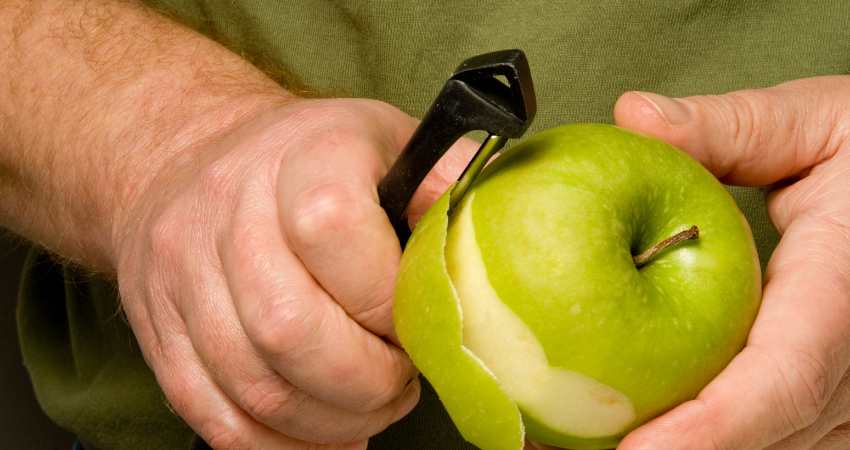
- Pesticides and Chemicals: Fruit peels and skins are more likely to contain traces of pesticides or other chemicals used in conventional farming. And if you feed them these peels, they can harm chinchillas.
- Digestive Issues: Fruit peels and skins can be tough on chinchilla’s guts. If you feed them peels, they can have digestive upset or blockages in their sensitive digestive system.
To ensure the safety and well-being of your chinchilla, it’s best to remove all peels, skins, seeds, and pits from the fruits you offer. Stick to feeding small amounts of safe fruits, such as apples, pears, or papaya, without the peels.
Can Chinchillas Eat Fruit Pits or Seeds?
No, chinchillas can’t eat fruit pits and seeds. Why? Because they can choke on these pits and seeds. So it is best to remove them. In addition, some fruit seeds like apples, pears, and grapes contain cyanide that can harm chinchillas.
What if a Chinchilla Refuses to Eat Fruits?
If a chinchilla refuses to eat fruits, there is generally no cause for concern. Chinchillas have unique dietary preferences, and not all individuals may be interested in or enjoy the taste of fruits. In fact, some chinchillas may not like certain foods at all, including fruits or even vegetables.
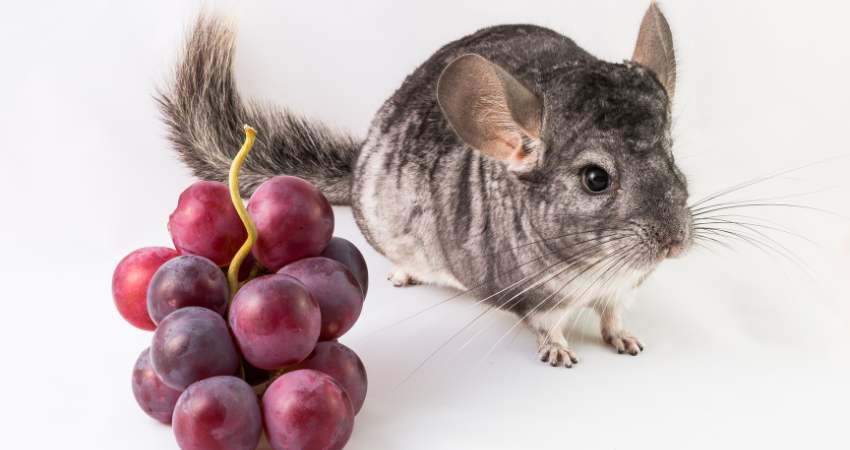
Chinchillas are herbivores with specific dietary requirements. So, their main diet should consist of high-quality hay and chinchilla pellets. These provide the necessary fiber, nutrients, and dental wear that chinchillas need to maintain their health.
As long as your chinchilla is eating plenty of hay and pellets and they are maintaining a healthy weight, there is no need to force them to eat fruits.
Can Chinchillas Eat Fruit Loops?
Fruit Loops is a cereal that we love to devour for breakfast. But unfortunately for Chinchillas, Fruit Loops or any other type of cereal are not suitable.
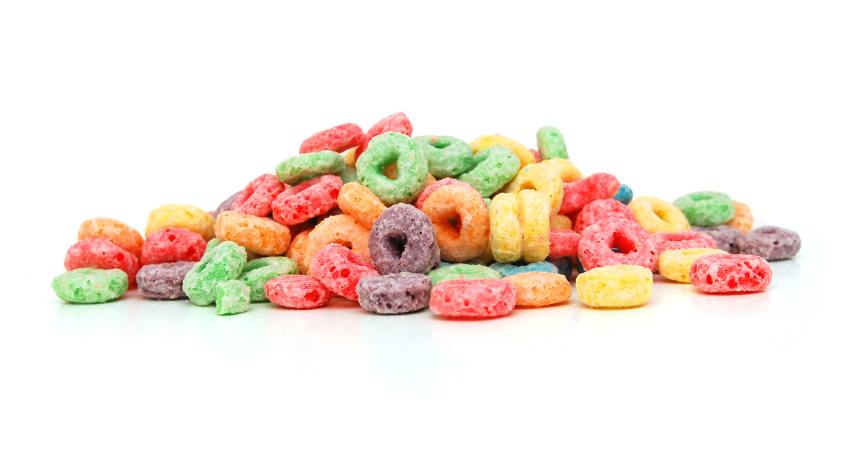
Why? Because these foods do not go head to head with their natural diet and as result your chinchilla can encounter digestive issues. Moreover, Fruit Loops cereal, in particular, is sugar-packed and houses artificial ingredients, so chinchillas can suffer obesity and dental problems upon consuming it.
Can Baby Chinchillas Eat Fruits?
Baby chinchillas, also known as kits, have sensitive digestive systems. Their diet during the early stages of life is critical for their growth and development. It’s generally recommended to avoid giving fruits to baby chinchillas until they are around six months old.
Some Parting Wisdom
Fruits can be a tasty and healthy addition to chinchillas’ diet. However, when you plan to introduce fruit to their diet, do so in moderation and balance.
Chinchillas can devour many fruits, including apples, pears, berries, and dried fruits; you should not exceed the recommended limit. As long as you introduce fruits slowly and in small amounts, they are safe to eat.
But remember serving sizes and frequency guidelines of fruits vary for every fruit and depend on the chinchilla’s age, weight, and overall health. Furthermore, you cannot feed citrus fruits, bananas, pears, pineapple, avocado, peach, plum, etc., to your chinchilla. In a nutshell, adhering to the vet’s guidelines regarding a chinchilla’s diet is essential.
